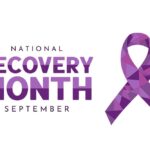The number of adults over age 60 is expected to double between 2015 and 2050. People work for decades, saving money and planning for retirement. Unfortunately, this long-awaited transition out of the working world doesn’t always turn out to be everything that a person has anticipated, and it can even lead to mental health struggles. At Palms Behavioral Health in Harlingen, Texas, we treat older adults who are facing acute mental health or behavioral health issues.
The Dark Side of Retirement
Many people do enjoy being out of the workforce, but for some people, their job and the various rituals and activities associated with it provide feelings of accomplishment, social connection, predictability, and financial security. For them, it may initially be exciting to have a completely empty schedule with no obligations, but change is still hard, even good change that a person wanted.
Retirees may suddenly face a void that can lead to:
- Anxiety
- Depression
- Uncertainty
- Loneliness
- Lack of direction
- Loss of identity
Additionally, when one or both partners in a couple retire, it can result in them spending more time together, which may result in increased conflicts, as they realign their expectations and routines.
What Can You Do About It?
If you’re finding that retirement isn’t everything you hoped it would be, you can choose to make some changes that might make it more enjoyable.
The first step is to determine what is missing:
- Are you struggling to determine who you are without your job?
- Are you missing the companionship you had with colleagues?
- Do you miss having a routine?
- Is too much togetherness with your spouse causing you to get on each other’s nerves?
- Are you feeling a desire to make a meaningful contribution?
- Are you bored?
- Are you worried about money?
- Is your physical health poor?
- Are you having mental health symptoms?
Once you name the problem(s), you can start working on solutions. For example:
- Throw yourself into a hobby
- Do some volunteer work with a cause that is meaningful to you
- Spend time with friends or family
- Get more involved in your faith community
- Support your favorite politician’s next campaign
- Take a class
- Get a part-time job
- Get some exercise
- Take a trip
- Create structure in your days with routines and schedules
- Find a nearby senior center where you can form some connections and engage in leisure activities
- Schedule an appointment with your primary care doctor to discuss symptoms you have been having, rule out physical causes, and get a referral for a mental health provider
Benefits of Retirement
While a third of new retirees indicated feeling depressed, for the most part, people do eventually adjust to being retired, and it generally becomes beneficial for them. Some of the benefits they may experience are:
- Relief from the stress of working
- More time for leisure
- More time for physical activity that can preserve physical and emotional well-being
- More time to make connections with people of their own choosing
Getting Professional Support
If you have tried making changes to make your retirement more enjoyable, but you find that you’re not adjusting to this new lifestyle, it may be time to reach out for professional support. There could be more going on than just difficulty adapting to retirement. For example, some medical conditions can present with symptoms that initially look and feel like a mental health disorder. A visit to your primary care doctor can help rule out physical causes and potentially lead to a referral to a mental health provider. You can also reach out to the National Suicide and Crisis Lifeline by calling or texting 988. This will connect you with a trained crisis counselor, who can talk you through what you’re experiencing and help you make a plan to move forward.
Older Adults and Suicide
If you are having thoughts of ending your life, know that you are not alone. Older adults have a high rate of suicide. Often, older people try to suffer through their struggles alone, rather than getting the help that they need and deserve, to move through suicidal thoughts. There is help available, and there is hope that things will get better.
At Palms Behavioral Health, our geriatric psychiatric care program provides specialized medical, mental health, and behavioral health treatment for adults over the age of 55. Our services are individualized to meet the unique needs of each person we serve.






